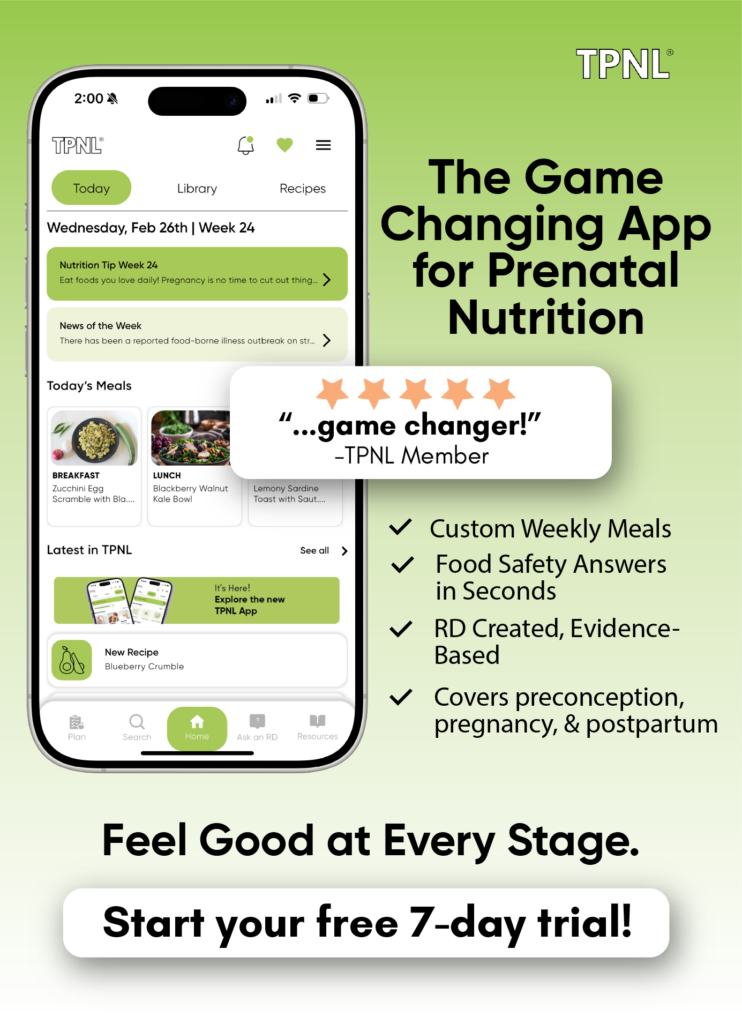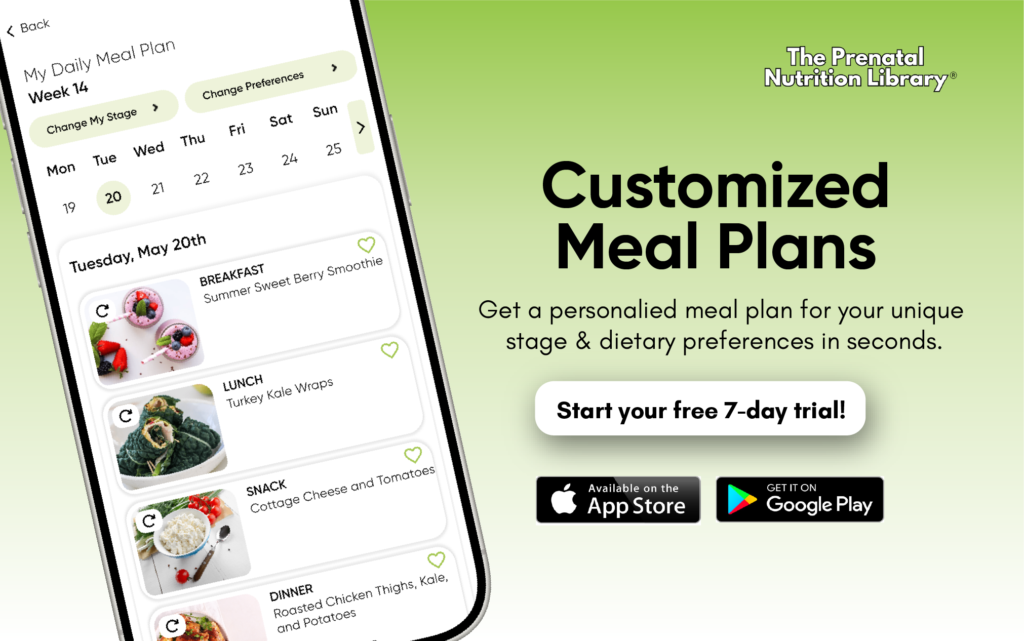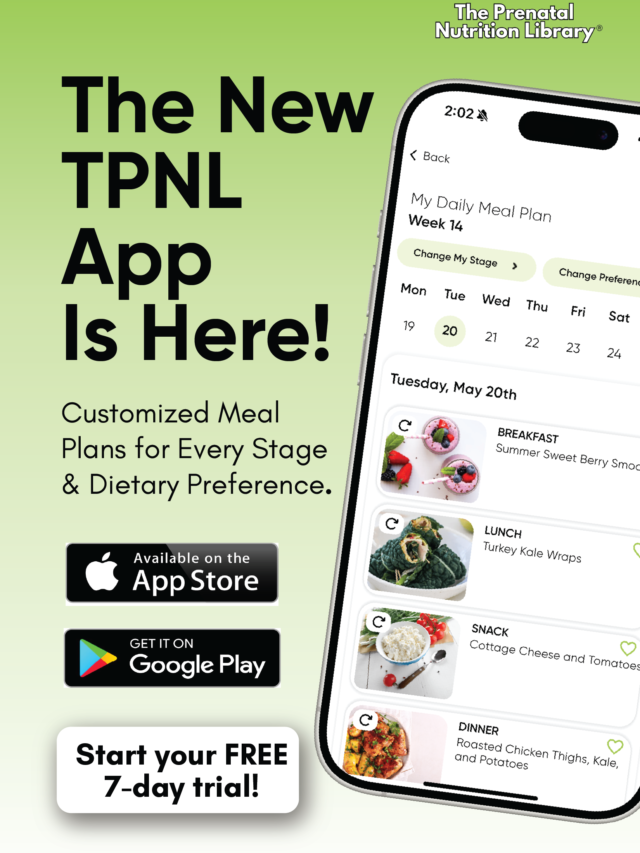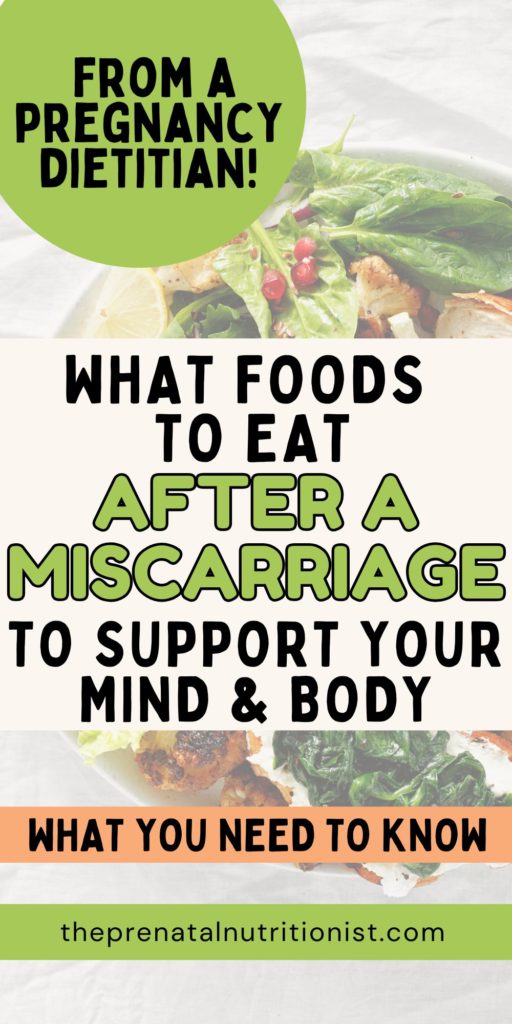
Going through a miscarriage can be one of the most emotional and devastating experiences a woman can experience. The physical and emotional recovery from pregnancy loss takes time. Every woman’s healing journey is different. Nutrition can play a role in supporting your recovery after loss.
But recovery isn’t just about physical healing. Your mental health deserves care and attention during this time. Anxiety, grief, and hormonal changes can deeply affect mood and energy. Eating nourishing foods, staying connected to loved ones, and giving yourself space to rest can make a meaningful difference.
After a miscarriage, your body undergoes many of the same physiological changes that occur in early pregnancy. Hormone fluctuations, blood loss, and physical strain can all contribute to feelings of fatigue and depletion. Supporting recovery through adequate nutrition, particularly by replenishing key nutrients such as iron, B vitamins, and electrolytes, can help restore balance and promote healing.
In this post, we’ll look at what foods to eat after a miscarriage, how to support your recovery, and what you should avoid. Take a deep breath, let yourself unapologetically feel, and know you are not alone.

What Foods To Eat After A Miscarriage
It can often be difficult to eat during a time of grieving, let alone find the motivation to cook or eat with nourishment in mind. If you are able to have a spouse, other family member(s), or any friends who ask how they can help prepare any of these for you, that is ideal.
The information below is not meant to overwhelm you but to empower you with actionable steps. While particular nutrients, such as those that support thyroid health, can be helpful, it’s important to start with any one small change.
Here are some foods to add to your diet after a miscarriage (as you feel up to it):
Leafy Green Vegetables
Leafy greens like spinach, kale, and Swiss chard are good sources of non-heme iron, folate, and magnesium. These foods help support your body while it recovers and contain antioxidants that support immune health.
Try to include leafy green vegetables in at least one or two daily meals. Toss spinach into smoothies, add kale to soups, or sauté Swiss chard with garlic for an easy side dish.
Eggs
Eggs are among the most nutrient-dense foods you can include in your diet. They provide high-quality protein along with key nutrients such as choline, selenium, and vitamin B12, all of which support tissue repair, muscle recovery, and healthy thyroid function.
Try to eat a few eggs per day with the yolks. You can scramble, boil, or add them to other healthy breakfast meal prep ideas.
Red Meat
After a miscarriage, blood loss can deplete your iron stores, which may contribute to fatigue, weakness, and slower recovery. Including safe, well-cooked meats such as beef or lamb can help replenish iron levels. Red meat provides heme iron, the most bioavailable form of iron, and amino acids supporting tissue repair, hormone production, and thyroid function.
Aim for 3–4 ounces of cooked red meat several times per week, and pair it with foods rich in vitamin C (such as citrus, strawberries, or bell peppers) to further enhance iron absorption.
Bone Broth
Bone broth provides collagen, glycine, and minerals that can support tissue repair, gut health, and overall recovery after a miscarriage. It’s also hydrating and gentle on the digestive system, making it a nourishing option when your appetite or digestion may be sensitive. Aim for about one cup daily, or a few cups per week, either as a warm drink or as a base for soups and stews.
Water and Hydrating Fluids
Staying well-hydrated is essential during recovery. Adequate fluids support circulation, hormone balance, digestion, and the transport of nutrients throughout the body. Aim for 8–10 cups of water daily, but give yourself grace. Progress matters more than perfection.
If plain water is difficult to tolerate, try coconut water or caffeine-free herbal teas. These can provide electrolytes and a gentle flavor while still contributing to your overall hydration.
Citrus Fruits
Citrus fruits like lemons, oranges, and grapefruit are excellent sources of vitamin C. This is a key nutrient for tissue repair, immune function, and collagen formation. Vitamin C also enhances the absorption of non-heme iron from plant foods, which is especially important if you’re limiting red meat or other animal sources of iron.
Aim for one to two servings of citrus daily, including fresh fruit or blended into a smoothie. Remember, we’re not aiming for perfection here. It’s about creating simple, nourishing habits that support your physical and emotional recovery.
Foods that support blood sugar balance
A growing body of research has found a link between insulin resistance and recurrent pregnancy loss. A healthy blood sugar balance benefits everyone and can be especially important during recovery. You can help stabilize blood sugar by prioritizing protein, quality fats, and fiber at each meal.
Aim for around 30 grams of protein per meal, fill half your plate with non-starchy vegetables, and include a source of fat such as avocado, olive oil, nuts, or seeds.
Focusing on mostly whole, minimally processed foods, especially quality animal proteins, and incorporating regular movement and resistance training (when able) can further support insulin sensitivity and overall hormonal balance.
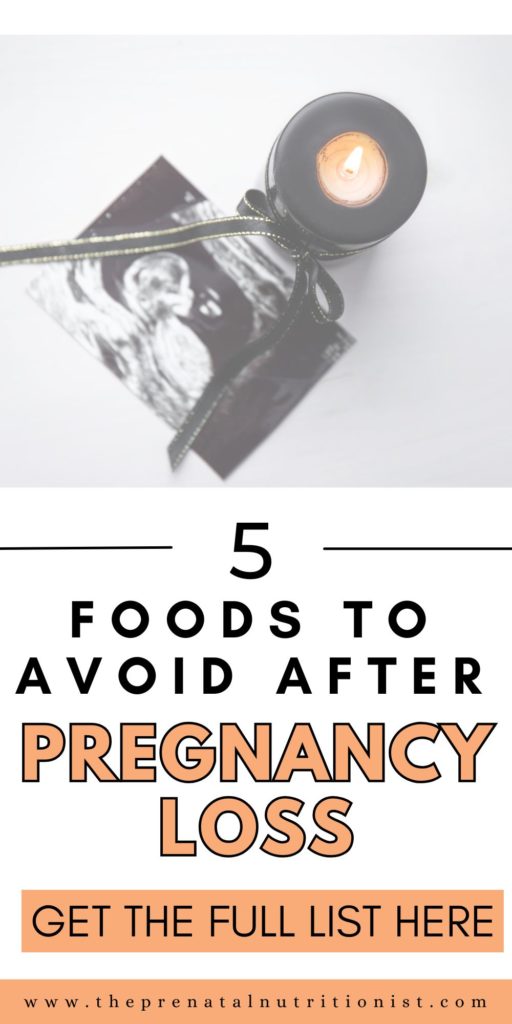
What Not To Eat After A Miscarriage
It’s important to remember that food itself does not cause miscarriage. Research is still ongoing to understand the many potential factors involved. However, certain foods and ingredients can hinder your body’s recovery or increase your risk of infection when your immune system is more vulnerable.
Mercury
Fish that are high in mercury, such as swordfish, king mackerel, shark, and tilefish, should be avoided during recovery. Mercury can accumulate in the body and interfere with hormonal and neurological health. Instead, choose low-mercury options like salmon, sardines, cod, or trout, which provide beneficial omega-3 fats to support healing and reduce inflammation.
Alcohol
Alcohol can disrupt hormone regulation, impair tissue repair, and worsen dehydration, all of which can slow recovery. It may also amplify feelings of fatigue or low mood. To support your physical and emotional well-being, prioritize hydration with water, herbal teas, or electrolyte-rich drinks.
Raw or Undercooked Animal Products
After a miscarriage, your immune system may be more susceptible to infection. Consuming raw or undercooked meat, poultry, or seafood increases the risk of foodborne illnesses such as Salmonella or E. coli, which can delay healing. Always cook animal products thoroughly and store them safely.
Excess Caffeine
It may be tempting to rely on caffeine for energy, but excessive intake can interfere with iron absorption and contribute to dehydration. Don’t stress over 1-2 cups daily, but limit excessive amounts of coffee and energy drinks. Instead, replace them with tea, herbal teas, bone broth, or mineral-rich beverages for more sustained energy and hydration support.
Listeria
Listeria is a type of bacteria that can cause serious infection, particularly after pregnancy loss, when your immune system may be more compromised. The best way to prevent an infection is to avoid unpasteurized dairy products, avoid raw sprouts, wash fruits and vegetables, and store food at an appropriate temperature.
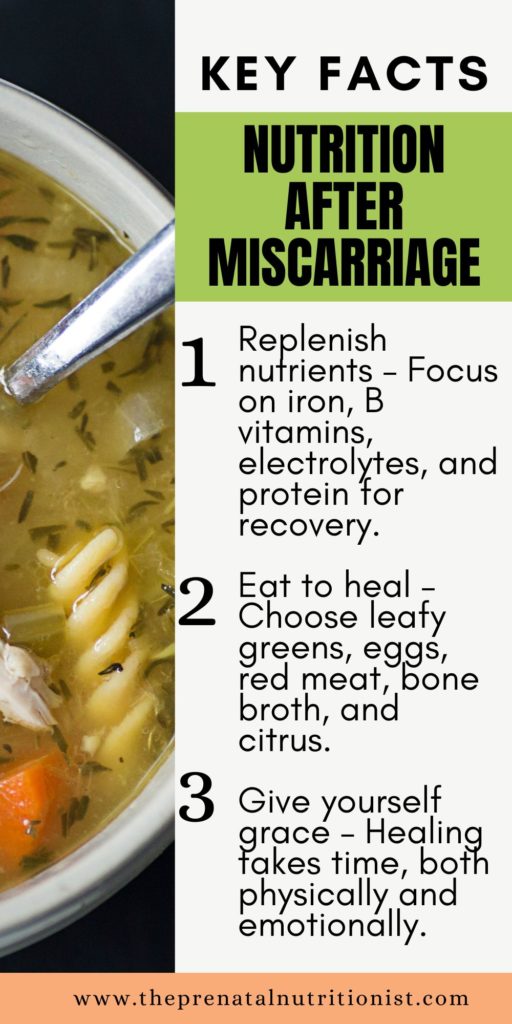
Nutrition plays an important role in supporting your recovery after a miscarriage.
Recovering from a miscarriage includes supporting both your mental and physical health. Eating foods that replenish nutrients and promote healing is a powerful way to rebuild strength and restore nutrient levels.
As your body heals, please be gentle with yourself.
Focus on small habits and goals. If you’re preparing for a future pregnancy or want to learn more about fueling your body throughout different stages, read:
- What to Eat Before an Ultrasound
- Eating When Nothing Sounds Good During Pregnancy
- What to Eat During Labor
Remember, healing takes time. Grab our full guide on nutrition after miscarriage inside The Prenatal Nutrition Library app.
Inside the guide, you’ll find evidence-based information on nutrients to focus on with food lists, meal ideas, labs to check, gut-healing tips, where to start if you want to get pregnant again, non-food-related ways to help recovery, and ways friends can truly help!
You can try the app completely free. Start your 7-day FREE TRIAL today.

